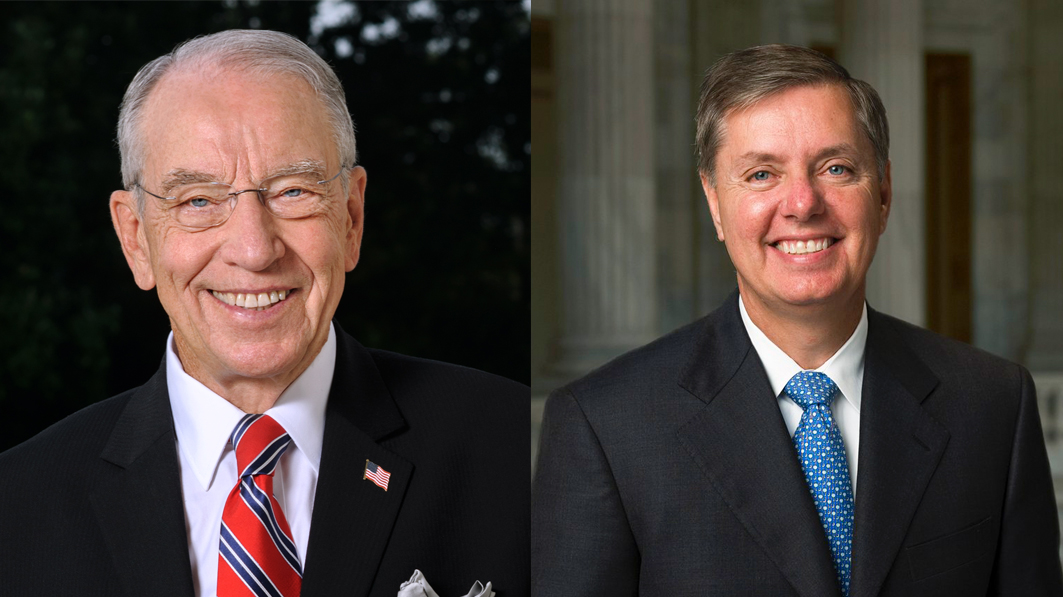In the aftermath of the mid-term elections, three changes stand out as potentially affecting the future confirmation of the President’s judicial nominations: An increase in the Republican majority in the Senate; a change in the Senate Judiciary Committee’s chair; and Senator Jeff Flake’s exit from the Senate.
First, Republicans have increased their numbers in the Senate by one, or possibly two seats. Prior to the mid-terms, Republicans held a razor-thin 51-49 edge in Senate seats. Even one defection could have potentially required a tie-breaking vote by the Vice President, and two defections would likely have been the end of a nomination. Increasing the conservative majority in the Senate provides some insurance that one or two disgruntled Republicans can’t hold the nomination hostage over a non-related issue. (More on Jeff Flake below).
Justice Brett Kavanaugh’s close confirmation vote of 50-48 was presaged by the no-holds-barred partisan nature of the opposition to him. The larger the conservative majority going forward, the less incentive for a smear campaign of the magnitude Kavanaugh experienced. The promised scorched-earth opposition to the Neil Gorsuch nomination, for example, evaporated when it was clear he was going to get the necessary votes by a safe margin.
Second, there will a change in the chair of the Senate Judiciary Committee, the body charged with investigating and recommending nominees to the full Senate. Senator Chuck Grassley (R-IA), who took over as chair of the committee in 2015, has announced he will step off next year so that he can take over the leadership of the Senate Finance Committee. Senator Lindsey Graham (R-SC) is in line to take over the Judiciary chair from Grassley, and he recently tweeted his intentions if selected:
“If I am fortunate enough to be selected by my colleagues to serve as Chairman, I will push for the appointment and Senate confirmation of highly qualified conservative judges to the federal bench and aggressive oversight of the Department of Justice and FBI.”
Will the passing of the torch from Sen. Grassley to Sen. Graham impact judicial confirmations? Probably not, if Sen. Graham’s emotional and vigorous defense of Justice Kavanaugh at his confirmation hearings is any indicator.
Grassley was as tough as nails in beating back criticism of the process and attempts to delay Kavanaugh, but exceedingly fair (maybe overly so) to committee members and witnesses alike. His process and scheduling ran like clockwork, as well. Graham, on the other hand, has been a mixed bag in the past for conservatives, with his skilled questioning of witnesses as his forte, but his deference to nominees from Democratic Presidents a troubling factor for many conservatives, who didn’t approve of his votes in favor of Justices Kagan and Sotomayor. However, the Senator Graham 2.0 we witnessed at the Kavanaugh hearings will make an able successor to Grassley and keep the pipeline of constitutionalist judges full and flowing.
Finally, the exit of Senator Jeff Flake (R-AZ) from the Judiciary Committee has been cheered by many conservatives, although tempered somewhat by disappointment that his Senate seat was won by a liberal Democrat. One only has to recall Flake’s last minute hallway capitulations to committee Democrats during the Kavanaugh hearings about an additional FBI investigation over sexual assault allegations, to understand this point. Even as he faces his Senate exit in January, and ought to be finishing strong, Flake has instead threatened to hold up all judicial nominees during the lame duck session until he gets a vote on a pending bill on an unrelated subject. No doubt a conservative replacement for Flake on the committee will go a long way towards ending last-minute theatrics and stalling tactics at future hearings.
The next two years in the Senate will be interesting. If the Senate continues confirming judicial nominees at its present pace, and if another vacancy or two opens up on the Supreme Court, the changes we are seeing in the Senate ought to serve as predictors of successful confirmations to continue, perhaps with less partisan obstruction and bickering. That in itself would be a worthwhile change.






